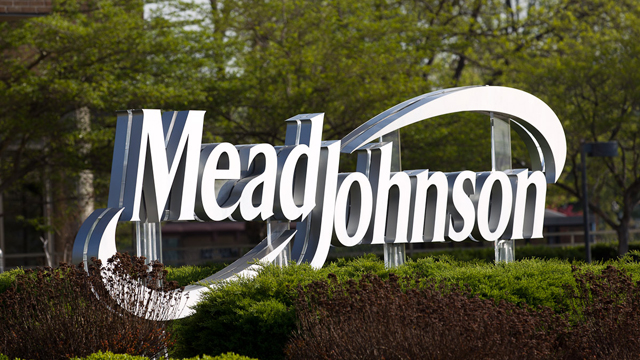
meadjohnson.com
As stated in Reckitt Benckiser’s press release, the British group will pay $ 90 per Mead Johnson’s share, or $ 16.6 billion for the entire company. Taking into account amount of debt, the transaction will number approximately $ 17.9 billion. At the close of trading on Thursday, rate of Mead Johnson’s shares was $ 83.96.
Buying Mead Johnson will allow Reckitt Benckiser to support business in the US and Australia and strengthen presence in developing countries, including China.
Mead Johnson’s revenue, which business is focused mainly on Asia and the United States, amounted to about $ 4 billion in 2016.
Over the past few years, the market has been rumoring about French Danone’s interest to purchase Mead Johnson. However, Danone last summer spend $ 12.5 billion to acquire the US WhiteWave Foods, specializes in production of natural and organic food products.
Reckitt Benckiser said it plans to finance the transaction from its own reserves and with raising funds by placing its papers.
The transaction is expected to be completed in the III quarter.
According to the statement, the deal should result in up to $ 250 million of leftover funds in the next three years. Experts believe Reckitt Benckiser hopes that acquisition of Mead Johnson would help bring sluggish sales up. Brands owned by Reckitt Benckiser include Clearasil skin care products, condoms Durex and Vanish stain remover. Mead Johnson accounts for 10% of the baby food market, where the company is second only to such giants as Nestle and Danone.
Reckitt Benckiser’s director Rakesh Kapoor used a catch phrase «mums not molecules» as an answer to a question why the company has best indicators compared to its pharmaceutical competitors.
"After the initial confusion, we are trying to figure out whether this solution is brilliant or mad", said Warren Ackerman, an analyst at Société Générale. "(Reckitt) has always had a relatively broad definition of consumer health and virtually none of these definitions relates to children."
The deal with Mead will offer Reckitt an opportunity to develop their business on the largest Asian market. This is China, the leading consumer of baby food.
Lianne van den Bos, Euromonitor's senior food analyst, gave an optimistic growth forecast and commented: "Given the fact that China is expected to significantly influence the global baby food growth in the next five years, it’s worth fighting and that's a good reason why a company with any level of production of consumer goods desires to show itself. "
The Mead - Reckitt deal will allow Kapoor to achieve sales target in emerging markets. The company receives 61% of the revenue from the United States and western Europe. Compared to its competitors, Reckitt Benckiser is rarely seen in the emerging markets with its consumer products.
source: reuters.com
Buying Mead Johnson will allow Reckitt Benckiser to support business in the US and Australia and strengthen presence in developing countries, including China.
Mead Johnson’s revenue, which business is focused mainly on Asia and the United States, amounted to about $ 4 billion in 2016.
Over the past few years, the market has been rumoring about French Danone’s interest to purchase Mead Johnson. However, Danone last summer spend $ 12.5 billion to acquire the US WhiteWave Foods, specializes in production of natural and organic food products.
Reckitt Benckiser said it plans to finance the transaction from its own reserves and with raising funds by placing its papers.
The transaction is expected to be completed in the III quarter.
According to the statement, the deal should result in up to $ 250 million of leftover funds in the next three years. Experts believe Reckitt Benckiser hopes that acquisition of Mead Johnson would help bring sluggish sales up. Brands owned by Reckitt Benckiser include Clearasil skin care products, condoms Durex and Vanish stain remover. Mead Johnson accounts for 10% of the baby food market, where the company is second only to such giants as Nestle and Danone.
Reckitt Benckiser’s director Rakesh Kapoor used a catch phrase «mums not molecules» as an answer to a question why the company has best indicators compared to its pharmaceutical competitors.
"After the initial confusion, we are trying to figure out whether this solution is brilliant or mad", said Warren Ackerman, an analyst at Société Générale. "(Reckitt) has always had a relatively broad definition of consumer health and virtually none of these definitions relates to children."
The deal with Mead will offer Reckitt an opportunity to develop their business on the largest Asian market. This is China, the leading consumer of baby food.
Lianne van den Bos, Euromonitor's senior food analyst, gave an optimistic growth forecast and commented: "Given the fact that China is expected to significantly influence the global baby food growth in the next five years, it’s worth fighting and that's a good reason why a company with any level of production of consumer goods desires to show itself. "
The Mead - Reckitt deal will allow Kapoor to achieve sales target in emerging markets. The company receives 61% of the revenue from the United States and western Europe. Compared to its competitors, Reckitt Benckiser is rarely seen in the emerging markets with its consumer products.
source: reuters.com


















